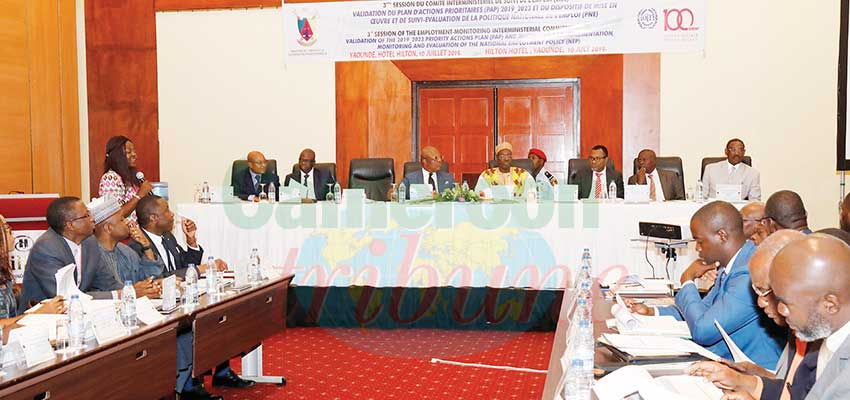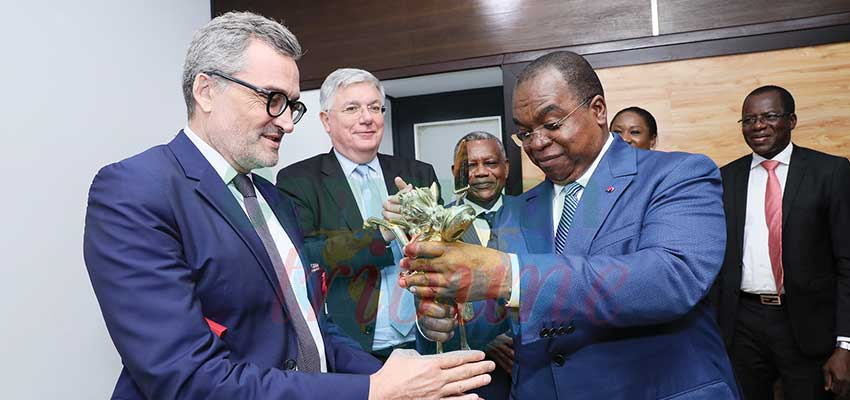Fight Against Unemployment : Gov’t Rolls Out Priority Action Plan

The sector-based employment strategy to run from 2019 to 2023 was at the centre of the third session of the Employment Monitoring Inter-Ministerial Committee in Yaounde, July 10.
A Priority Action Plan (PAP) to be implemented within the timeframe 2019-2023 has been put in place by government in a bid to boost the functioning of the labour market with regards to the evolution of the national economy. PAP, which details the strategic components of the National Employment Policy, was the substance of the third session of the Employment Monitoring Inter-Ministerial Committee (CISE) in Yaounde, Wednesday July 10, 2019.
While presiding over the session, the Minister of Employment and Vocational Training, Issa Tchiroma Bakary, who is Statutory President of CISE, said the PAP is being put in place at a time the government is revisiting the national development strategy of the post-Growth and Employment Strategy Paper. “Government has made employment a top priority in the national development strategy as seen in the GESP. By 2035, every citizen of working age who is looking for a decent job can access it without discrimination,” Tchiroma emphasised. He was optimistic that hiccups like lack of skills, low level of flow of information on the job market, amongst others, will be technically overcome. The Minister said the mechanism for the implementation, monitoring and evaluation of the National Employment Policy will be strictly followed.
Experts disclosed that the Priority Action Plan is divided into four strategic components of the National Employment Policy. They cited the component to promote the creation of decent jobs in public investment projects and growth areas. Others include: stepping up the creation and promotion of very small, small and medium-sized enterprises as well as small and medium-sized industries, entrepreneurship and farmers’ organisation; improving manpower employability; and improving employment market governance.
The latest statistics from the National Institute of Statistic (NIS) show that unemployment remains a major problem in the country, especially in the cities of Yaounde and Douala, with a rate of 15.5 per cent. But more worrisome is underemployment, as NIS says 70.3 per cent of workers do not get paid a wage equivalent to their output and/or qualification. Government wants to change the tide.








Comments